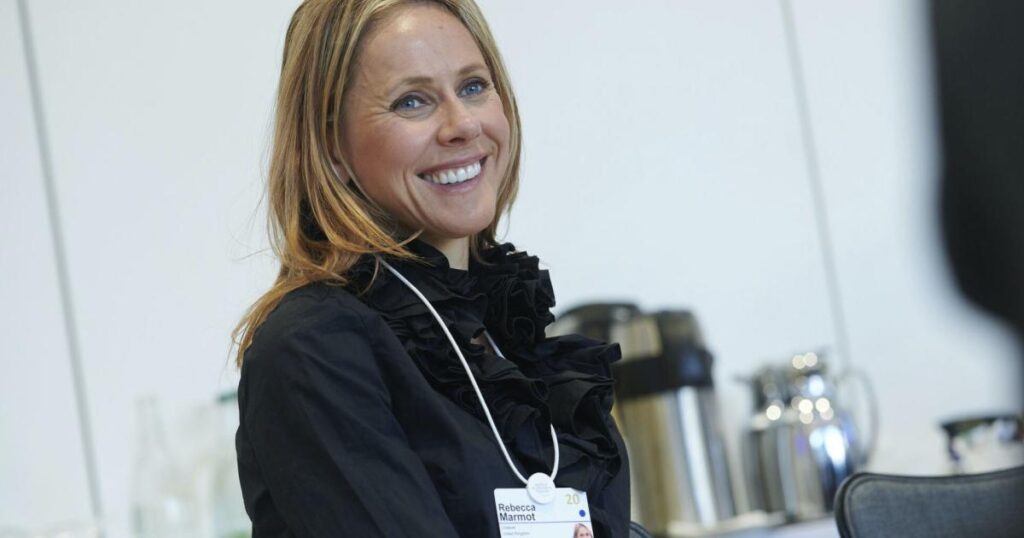Unilever threatens to quit trade associations that block climate policy
3 min read
Unilever is threatening to walk away from any trade association that doesn’t align its policy positions with the Paris Agreement goal of keeping global temperature increases below 1.5 degrees Celsius.
The London-based consumer products company in early March published a detailed assessment of 27 of the more than 600 organizations of which it is a member. The groups — ranging from the American Cleaning Institute to the World Business Council for Sustainable Development — were selected because they “represent sectors with high emissions and where achieving Unilever’s climate goals is likely to be highly dependent on climate policy,” Unilever said.
The aim: Assess whether the organizations help or hinder the development of regulations, standards and other policies that reduce greenhouse emissions to net zero.
Unilever’s review found eight industry associations were misaligned with at least one of its policy positions, including the European Round Table for Industry and German Chemical Industry Association. Eighteen were “aligned”; eight had no public record of “meaningful engagement” with governments and four had “low engagement,” the company said.
The analysis includes specific actions Unilever will take to push organizations to do more on climate policy while remaining open-minded about how to get there: “There is no single policy playbook for achieving 1.5 degrees Celsius. There can and will be legitimate differences of opinion on what the most effective policies are in any given region or sector,” the analysis says.
“We know that becoming fully aligned will not be straightforward, but over the next 12 months we will focus our attention on the practical and realistic actions associations can take,” said Unilever CSO Rebecca Marmot, in a blog. “We want our associations to be catalysts for positive policy change, and if they can’t, then we reserve the right to withdraw our membership fees.”
This is not an idle threat. Unilever quietly quit the world’s biggest business trade group, the U.S. Chamber of Commerce, years ago over its historical hostility toward environmental policies, according to a 2017 investigation by The Guardian. This stance is relatively rare: A majority of companies touting net-zero targets don’t support those pledges with climate policy advocacy, either directly or through trade groups, according to November research by InfluenceMap.
“Unilever’s review of its trade associations is both unusual and commendable,” said Bill Weihl, founder and co-executive director of ClimateVoice, a nonprofit nudging corporations to take more action on climate policy. “Many companies that speak up actively on important climate policies undermine their own advocacy through membership in influential trade associations that regularly obstruct policy progress.”
The climate policies Unilever cares about
In its new climate transition action plan, Unilever identifies five big areas where it wants change:
- National climate strategies that help make it more economically feasible for companies to deliver ambitious emissions reductions.
- Support for setting a price on carbon emissions.
- Regulations that accelerate the scale-up of renewable energy and the phase-down of fossil fuels, such as the elimination of fossil fuel subsidies.
- Stronger protection for nature and forests.
- Changes to carbon accounting standards that make it easier to spur action within corporate supplier networks.
The powerful voice inside trade associations
Unilever sees both direct advocacy and policy engagement, and the “indirect” lobbying it does through trade group memberships, as essential. It has been active in both spheres. It offers two examples:
- The company left the European Chemical Industry Council in 2015 but rejoined in 2022 to push it to become more supportive of climate policy. Unilever continues to disagree with the council’s positions on carbon-pricing and electricity grid decarbonization.
- Unilever was the catalyst for the Personal Care Products Council’s decision to add a sustainability committee focused on climate-related policy engagement.
“Many companies exert more influence on climate policy through their trade associations than they do directly, in part because of the enormous influence wielded by large trade groups — influence that derives from the collective influence of their entire membership,” Weihl said. “It is incumbent on members to take responsibility.”
Unilever reviews its industry association memberships annually and has committed to a deeper review every three years, which will include information about climate policy engagement. That list will be disclosed, with the first scheduled to publish in 2025, the company said.
“We hope this combination of constructive partnerships and increased scrutiny will not only support Unilever in achieving its climate goals but also create a ripple effect for other companies working in this area,” Marmot said.




